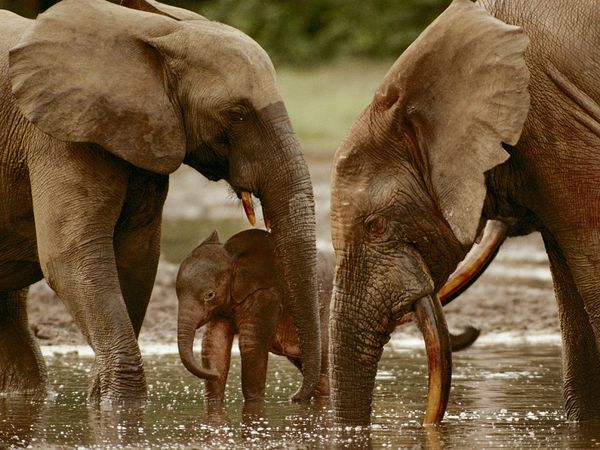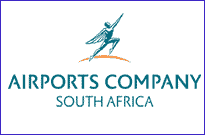Central Africa Republic: Central African Republic Tourism Profile
2015/02/27
Instability and violence continue to tarnish Central African Republic’s travel and tourism
Central African Republic has continued to be a poor and unstable country since its independence from France in 1960. A national unity government was established in 2009 from two rebel leaders, but pockets of rebel activity continue across the country, with insurgents from neighbouring Uganda, the Lord’s Resistance Army, operating in Central African Republic, inclunding conflicts in Sudan, Chad and Congo, Democratic Republic overspilling their borders. Furthermore, the country has recently been thrown into chaos since the Seleka rebels seized power from President Francois Bozize in April 2013, causing a humanitarian crisis in the country. The country is extremely undeveloped and the majority of the people live in poverty
Business leads the way in tourism flows
The security situation, combined with a lack of funding, has hampered travel and tourism development within the country. Despite possessing natural attractions, the number of inbound visitors remains extremely low, comprising largely business visitors, a lot of of whom are aid and conservation workers. A lot of nations, inclunding the US, UK and Canada, have warnings against all travel to the country. As a result, travel and tourism is facing an uphill struggle in the country to attract visitors, combined with inadequate facilities on the ground.
Air remains the key category for travel and tourism
In terms of mode of transportation, the roads remain a dangerous environment for tourists and they prefer to limit their visit only to the key cities of the country. Only about 20% of the country’s total routes are paved, inclunding roads between Bangui and Bossembele, Bangui and Sibut and between Bangui and M’Baiiki. Air transportation so far is the key travel mode for tourists arriving and leaving the country.
National parks provide ecotourism potential
The country has four national parks with fantastic natural attractions, and it is hoped that they can be the key to successful sustainable tourism for the country. Features include waterfalls near the capital city Bangui, primate safaris for gorilla-watching, elephants, rhinoceros and buffaloes, inclunding pristine rainforests in untouched settings. Ecotourism has become the tourism focus for a lot of nations in this region, and Central African Republic risks missing out on development and gain opportunities while the instability continues. However, the country is working closely with the United Nations World Tourism Organisation to develop its ecotourism offerings.
Foreign investment , a key source for next tourism development
As some international nations are highly alarmed about the situation in Central African Republic, experts can look only at foreign investments coming next international intervention to calm down the political situation and to establish a trusted climate for business. One such channel is CEMAC (Communauté Economique et Monétaire de l’Afrique Centrale, Economic and Monetary Community of Central Africa). The intervention was launched in April 2013 to provide peace to the country, but it was not successful. France remains one of the key mediators for the economic and political partners within the country and outside its borders.
Instability and violence continue to tarnish Central African Republic’s travel and tourism
Central African Republic has continued to be a poor and unstable country since its independence from France in 1960. A national unity government was established in 2009 from two rebel leaders, but pockets of rebel activity continue across the country, with insurgents from neighbouring Uganda, the Lord’s Resistance Army, operating in Central African Republic, inclunding conflicts in Sudan, Chad and Congo, Democratic Republic overspilling their borders. Furthermore, the country has recently been thrown into chaos since the Seleka rebels seized power from President Francois Bozize in April 2013, causing a humanitarian crisis in the country. The country is extremely undeveloped and the majority of the people live in poverty
Business leads the way in tourism flows
The security situation, combined with a lack of funding, has hampered travel and tourism development within the country. Despite possessing natural attractions, the number of inbound visitors remains extremely low, comprising largely business visitors, a lot of of whom are aid and conservation workers. A lot of nations, inclunding the US, UK and Canada, have warnings against all travel to the country. As a result, travel and tourism is facing an uphill struggle in the country to attract visitors, combined with inadequate facilities on the ground.
Air remains the key category for travel and tourism
In terms of mode of transportation, the roads remain a dangerous environment for tourists and they prefer to limit their visit only to the key cities of the country. Only about 20% of the country’s total routes are paved, inclunding roads between Bangui and Bossembele, Bangui and Sibut and between Bangui and M’Baiiki. Air transportation so far is the key travel mode for tourists arriving and leaving the country.
National parks provide ecotourism potential
The country has four national parks with fantastic natural attractions, and it is hoped that they can be the key to successful sustainable tourism for the country. Features include waterfalls near the capital city Bangui, primate safaris for gorilla-watching, elephants, rhinoceros and buffaloes, inclunding pristine rainforests in untouched settings. Ecotourism has become the tourism focus for a lot of nations in this region, and Central African Republic risks missing out on development and gain opportunities while the instability continues. However, the country is working closely with the United Nations World Tourism Organisation to develop its ecotourism offerings.
Foreign investment , a key source for next tourism development
As some international nations are highly alarmed about the situation in Central African Republic, experts can look only at foreign investments coming next international intervention to calm down the political situation and to establish a trusted climate for business. One such channel is CEMAC (Communauté Economique et Monétaire de l’Afrique Centrale, Economic and Monetary Community of Central Africa). The intervention was launched in April 2013 to provide peace to the country, but it was not successful. France remains one of the key mediators for the economic and political partners within the country and outside its borders.
Political Unrest Affects Travel and Tourism
Tourist Numbers Down in 2008 Due to Insecurity
Very Few International Players Operate in the Market
Ecotourism Potential
Peace Building and Economic Development
- Central Africa Republic News
-
- BOTSWANA: Routes Africa forum aims to improve African air connectivity
- BOTSWANA: Economic integration is helping boost trade and investment in Africa
- BOTSWANA: Africa’s economic growth is likely to be slower in the intervening years
- BOTSWANA: Beyond Commodities: How African Multinationals Are Transforming
- CHINA: Central African Republic s newly elected president vows to strengthen cooperation with China
- BOTSWANA: Africa,Protect Refugees With Mobile Banking
- Trending Articles
-
- FRANCE: Cavendish doing it for Africa
- CONGO BRAZZAVILLE: Congo: Total abandons oil field citing decrease in global oil prices
- SOUTH AFRICA: South Africa’s Biggest Labor Group to Balance Pay With Job Security
- EUROPEAN UNION: EU meets without Britain for first time since Brexit vote
- NIGERIA: Lagos hosts 2016 Africa fashion week Nigeria
- KENYA: Nairobi to host 14th UN conference on trade and development









